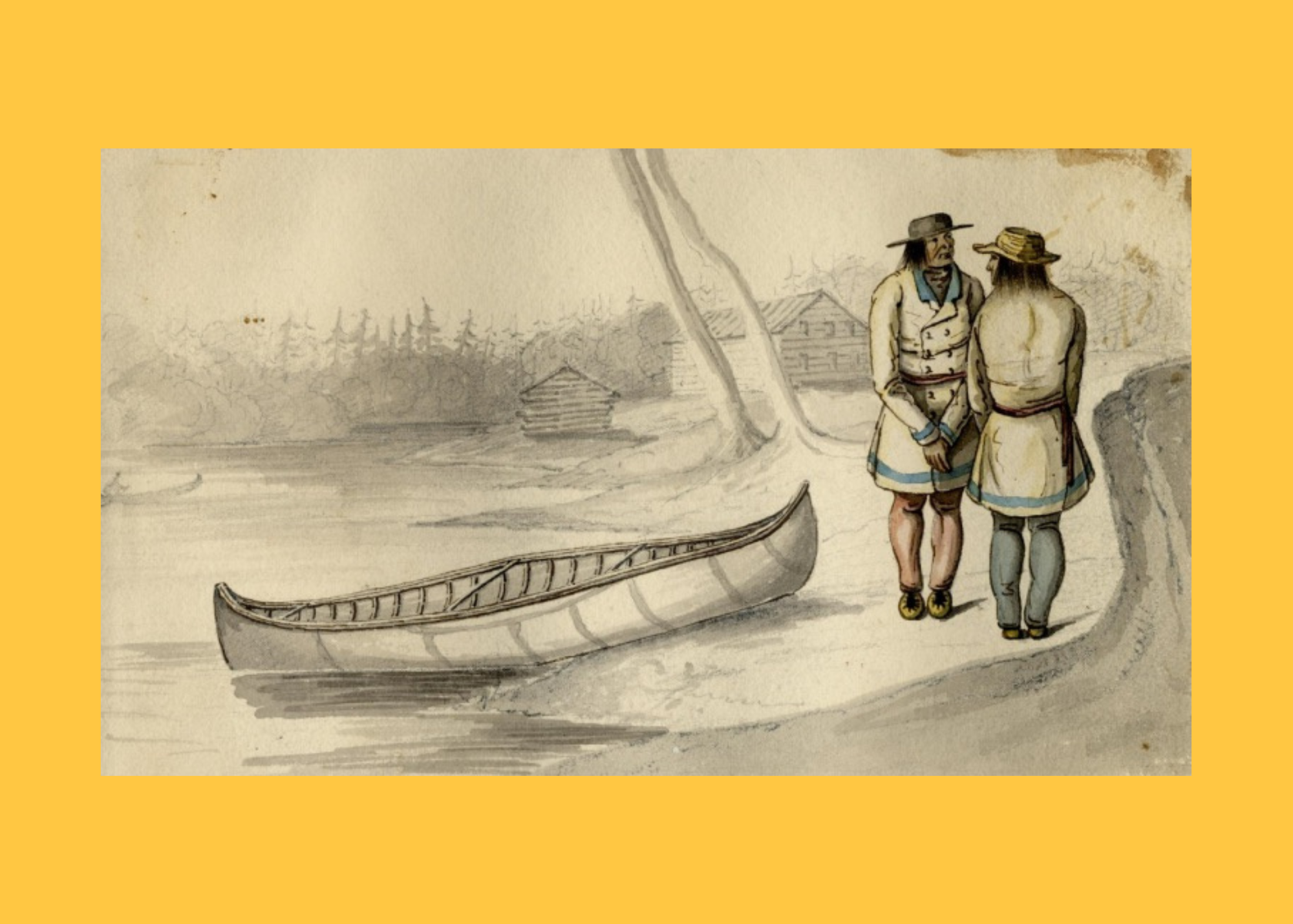CHIEF YELLOWHEAD’S JUSTICE IN 1832

Indians and Canoe at Coldwater River, 1844, Titus Hibbert Ware (Toronto Public Library)
By Fred Blair, OMAH History Committee member and Family Historian
This is a story of an accidental killing in 1832, an unsatisfactory trial verdict, and how Chief William Yellowhead found a way to provide restitution and avoid a revenge killing. John Coucher Steele reported the events that lead to a young man’s death.
“One day our old housekeeper and I walked to Orillia, and on our way, near where, Warminster is now, we met a young man of the name of Graverod, who told us he had seen a bear a few minutes before, but not having a gun he could do nothing, but he intended procuring a gun at Coldwater, and he might see the bear on his return next day. The old woman who was with me was pretty well frightened, but we saw no bear, and on our return the next day we met, near Bass Lake, five or six Indians carrying a wounded Indian boy. It seems the boy had been shooting at a bird, and his arrow was caught by a branch of a tree, and he climbed up the tree to get it. Young Graverod was returning from Coldwater, and near the same place where he had seen the bear the day before he saw something dark among the leaves of a birch tree, and thinking that it was the bear, he fired and wounded the poor Indian boy. Graverod was with the party of Indians, but the poor boy died from his wounds.”
The above story is from John C. Steele, Reminiscences of a Pioneer, Simcoe County Pioneer Papers, Simcoe Co. Historical Soc., 1908, 1975 reprint, pages 10-11.
John Coucher Steele was the son of Elmes Yelverton Steele who had settled at Fairvalley near Warminster in June, 1832. He was also the half brother of Sir Samuel Steele.
Nathan Ince, a lecturer at McGill University, recently wrote about the outcomes of this event, “On July 14, 1832, Jacob Sahkeconabe was shot and killed by Joseph Graverod … Sahkeconabe belonged to the Anishinaabe community of Mnjikaning, more often known to outsiders as Yellowhead’s village.” The local coroner held an inquest and a jury found Joseph not guilty. Chief William Yellowhead and his tribe were “highly dissatisfied” and a revenge killing was likely. How did Yellowhead resolve the problem?
To find out, Nathan Ince’s story of “Death, Restitution, and Legal Pluralism in Upper Canada” is linked below.
